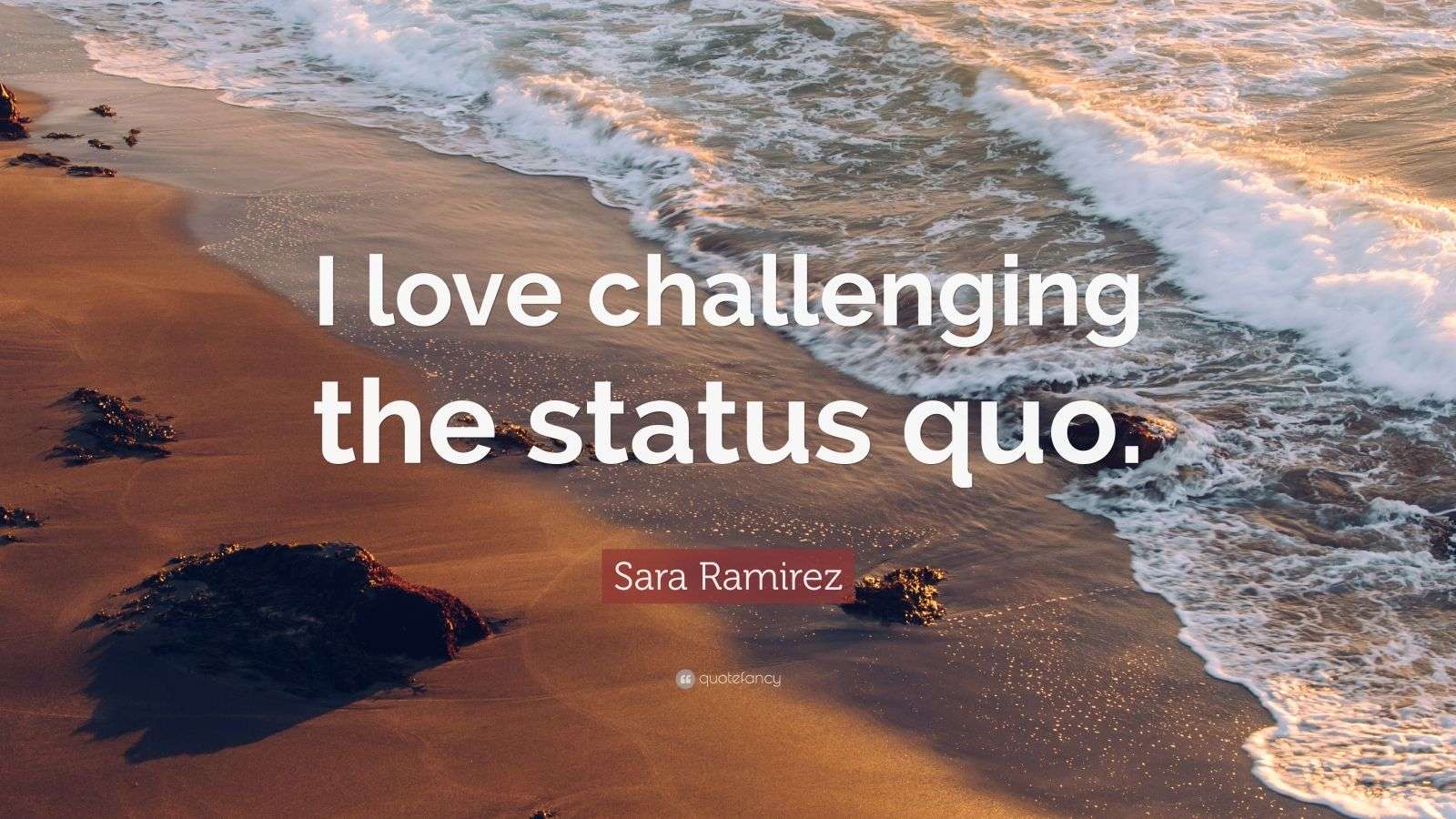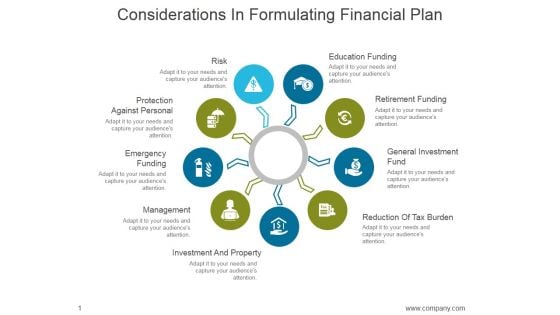Facing Retribution: The Risks Of Challenging The Status Quo

Table of Contents
Professional Risks of Challenging the Status Quo
Challenging the status quo, whether through whistleblowing, proposing radical new ideas, or simply expressing dissenting opinions, can have significant professional ramifications. The risks of innovation extend beyond mere discomfort; they can directly impact your career trajectory and overall professional well-being.
Job Loss and Career Stagnation
One of the most immediate risks is job loss. Organizations, especially those resistant to change, may view dissenters as disruptive elements and choose to eliminate the source of the disruption. This can manifest as outright dismissal, demotion, or a complete stagnation of career progression. Consider the case of many early pioneers in technology; often the disruptive innovation that eventually revolutionized an industry was initially met with fierce resistance and career setbacks for the innovators themselves.
- Loss of opportunities for advancement: Those who challenge the status quo may find themselves excluded from promotions and leadership opportunities.
- Isolation and marginalization within the workplace: Dissenters can become isolated and marginalized, struggling to build positive relationships with colleagues and supervisors.
- Damage to reputation within the industry: A reputation for being a "troublemaker" or "difficult employee" can severely hamper future career prospects.
Reputational Damage and Social Isolation
The repercussions of challenging the status quo extend beyond the workplace. Publicly challenging established norms or powerful entities can lead to reputational damage and social isolation. This is especially true in the age of social media, where negative comments and online harassment can quickly escalate.
- Negative feedback and online harassment: Individuals who challenge the status quo can become targets of online bullying and harassment campaigns.
- Loss of trust and credibility among peers: Challenging accepted beliefs can damage relationships with colleagues, friends, and family members who hold opposing views.
- Difficulty finding new employment opportunities: A damaged reputation can make it difficult to secure new employment opportunities, particularly within the same industry.
Legal and Financial Risks of Challenging the Status Quo
The risks of innovation often extend beyond professional repercussions and can encompass significant legal and financial challenges. Challenging powerful interests can lead to costly legal battles and substantial financial losses.
Legal Repercussions and Lawsuits
Exposing wrongdoing or challenging powerful entities can trigger legal action. Organizations may retaliate with lawsuits designed to silence critics or drain their resources. This is especially relevant in cases involving whistleblowing, where individuals may face significant legal battles.
- SLAPP suits (Strategic Lawsuits Against Public Participation): These lawsuits are often used to intimidate and silence critics by forcing them to incur high legal costs.
- Breach of contract claims: Employees who challenge the status quo may face claims of breach of contract if their actions violate company policies or agreements.
- Defamation lawsuits: Accusations of defamation can arise from public statements made during challenges to the status quo, leading to expensive legal battles.
Financial Penalties and Loss of Income
The financial risks associated with challenging the status quo can be severe. Individuals may face penalties, fines, or loss of income, potentially leading to financial ruin.
- Loss of bonuses or incentives: Employees who challenge the status quo may lose out on performance-based bonuses or incentives.
- Financial penalties for whistleblowing: While some jurisdictions offer whistleblower protection, others may impose significant financial penalties on individuals who expose wrongdoing.
- Loss of investments or business opportunities: Challenging established interests can result in the loss of investments or business opportunities, leading to substantial financial losses.
Mitigating the Risks of Challenging the Status Quo
While the risks of challenging the status quo are significant, they are not insurmountable. Careful planning, risk assessment, and strategic alliances can significantly reduce the potential for negative consequences.
Strategic Planning and Risk Assessment
Before challenging the status quo, it's crucial to conduct a thorough risk assessment. This involves identifying potential challenges, assessing their severity, and developing strategies to mitigate them.
- Conduct thorough research and gather evidence: Strong evidence is critical for supporting your claims and increasing the likelihood of a positive outcome.
- Develop a communication strategy: A well-defined communication plan will help you present your case effectively and manage media attention.
- Identify potential allies and supporters: Building alliances with like-minded individuals or organizations can provide crucial support and protection.
Building Alliances and Seeking Support
Building strong alliances with colleagues, industry experts, legal professionals, or advocacy groups can significantly reduce the risks associated with challenging the status quo.
- Networking with colleagues and industry experts: Connect with others who share your concerns and can provide support and advice.
- Seeking mentorship from experienced individuals: Guidance from experienced professionals can be invaluable in navigating the challenges of challenging the status quo.
- Joining relevant professional organizations: Membership in professional organizations can provide access to resources, support, and legal counsel.
Navigating the Risks of Challenging the Status Quo
In conclusion, facing retribution is a real possibility when challenging the status quo. The professional, legal, and financial risks can be substantial, but understanding these risks allows for more informed decisions. Strategic planning, risk assessment, and the development of strong alliances are essential for mitigating these risks. While the path of challenging established norms can be difficult, it is often necessary for progress and positive change. Learn more about effective strategies for innovation and change management by [link to relevant resource]. Don't let fear of retribution silence your voice; navigate the risks strategically and contribute to a better future.

Featured Posts
-
 San Hejmo Konzert Das Komplette Line Up Ist Da
May 24, 2025
San Hejmo Konzert Das Komplette Line Up Ist Da
May 24, 2025 -
 Aleksandrova Samsonova Itogi Pervogo Kruga Turnira V Shtutgarte
May 24, 2025
Aleksandrova Samsonova Itogi Pervogo Kruga Turnira V Shtutgarte
May 24, 2025 -
 Escape To The Country The Financial Considerations Of Rural Living
May 24, 2025
Escape To The Country The Financial Considerations Of Rural Living
May 24, 2025 -
 Kyle Walkers Night Out Details Emerge Following Annie Kilners Return Trip
May 24, 2025
Kyle Walkers Night Out Details Emerge Following Annie Kilners Return Trip
May 24, 2025 -
 Amundi Dow Jones Industrial Average Ucits Etf How To Interpret Net Asset Value
May 24, 2025
Amundi Dow Jones Industrial Average Ucits Etf How To Interpret Net Asset Value
May 24, 2025
